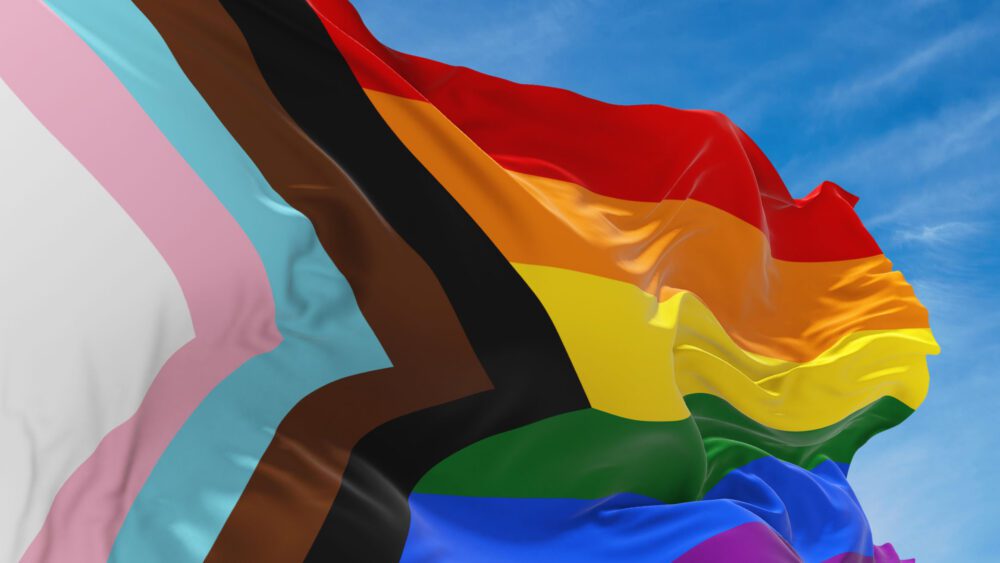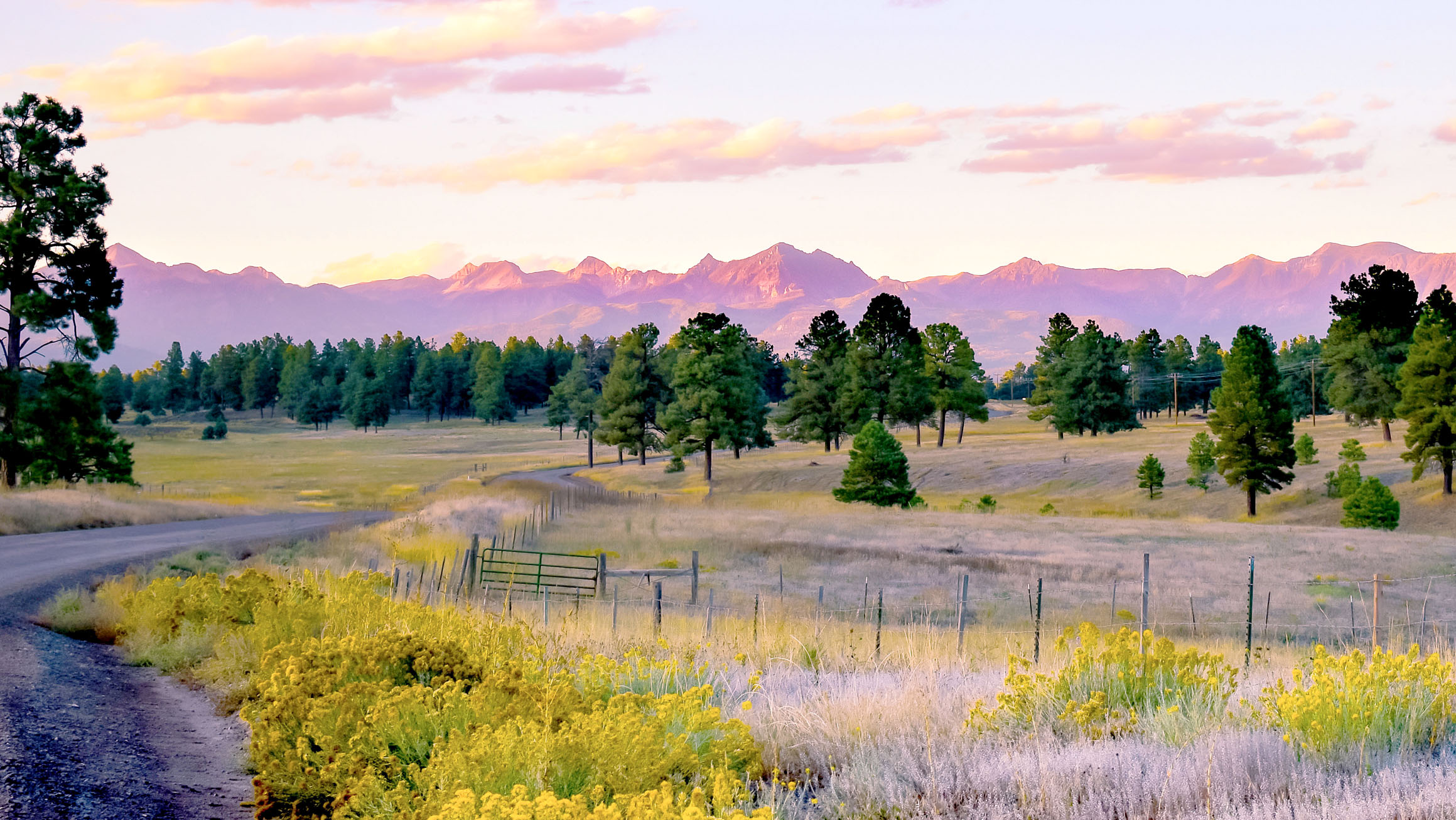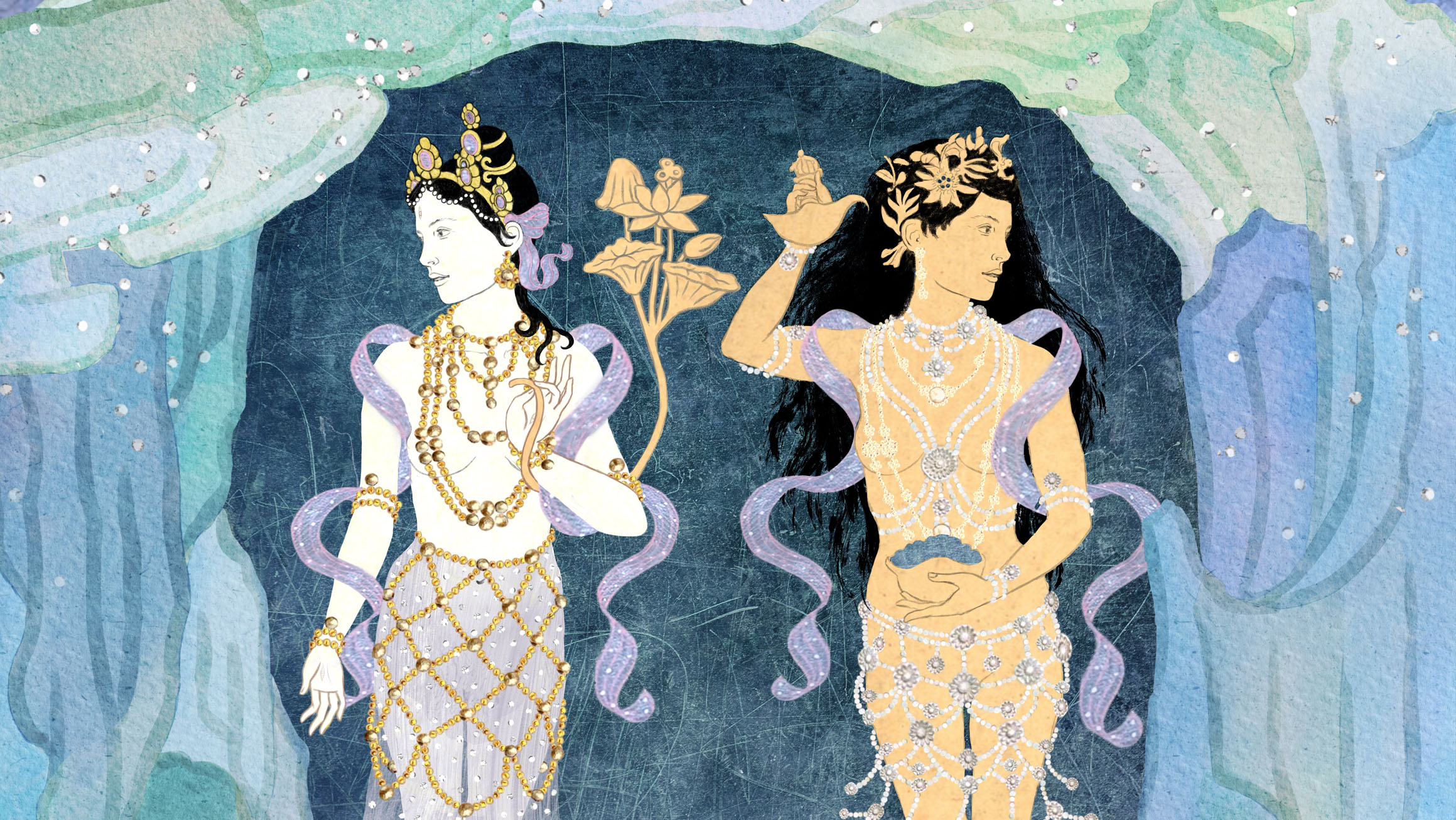“Being Queer forced me to explore other ways of being, that could accommodate the fullness of my existence without having to sacrifice elements of who I was.” ~ Erik Jampa Andersson
In celebration of Pride Month, we share this blog post, which contains excerpts taken from a recent interview Cady Allione had with Erik Jampa Andersson, on Queerness and his new book Unseen Beings: How We Forgot the World.
Being Queer is itself a liberating force. Queer liberation, I think is a very real thing, and not just in a sort of political sense of being liberated from hetero, patriarchy and so on, but also just the basic experience of existing as “other,” even in your own home, in your own family, in your own culture, in your own society.
Certainly, I always knew that I was different. I always knew that there were elements of who I was that were not and would not be accepted by the dominant culture in which I existed. And for that reason, I was forced to “think outside of the box.” I couldn’t just stay comfortable. The path wasn’t just carved out for me because I was Queer. I was forced to explore other ways of being, that could accommodate the fullness of my existence without having to sacrifice elements of who I was.
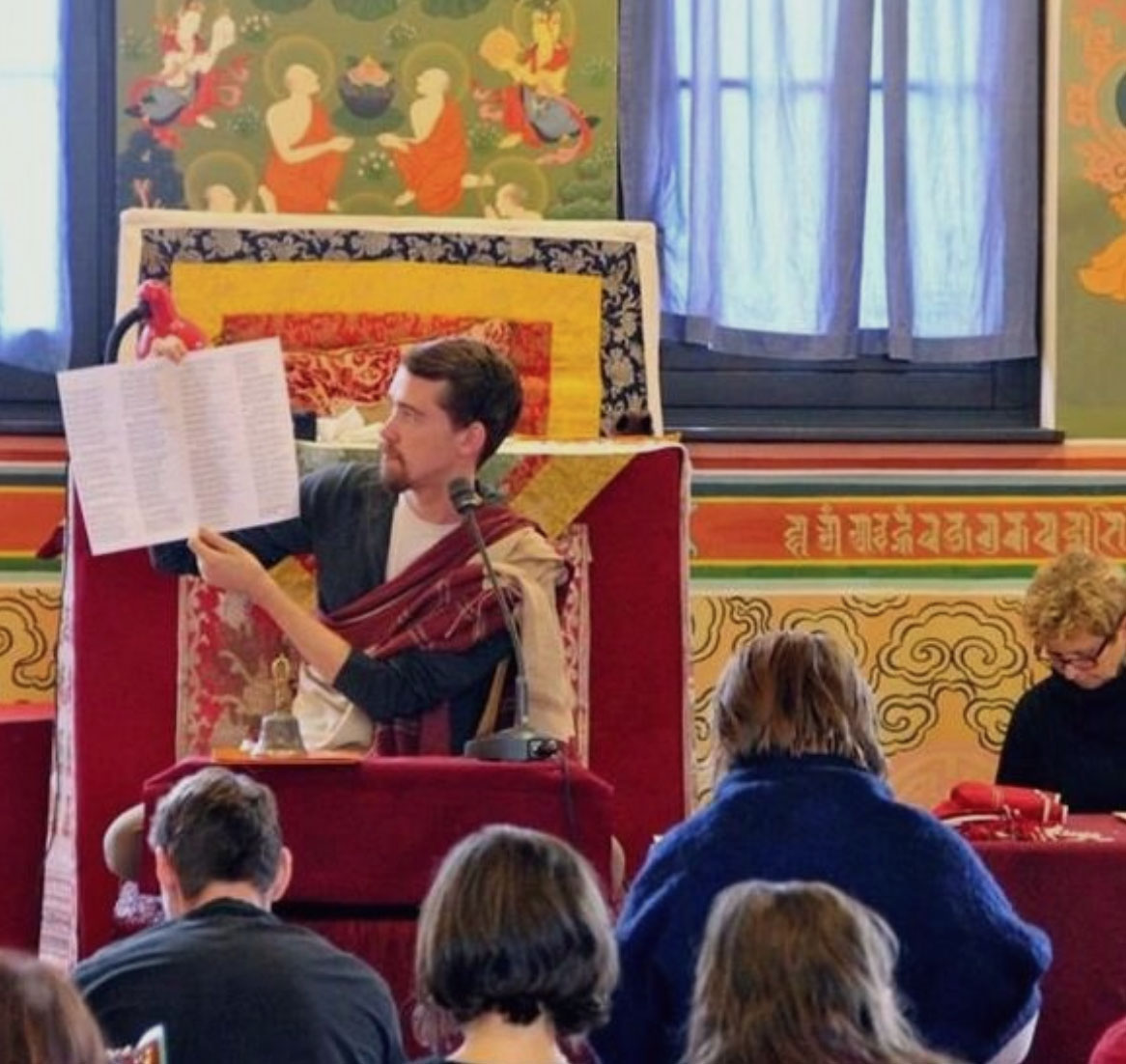
Photo: Erik Jampa Andersson teaching at a retreat
It forces you to ask questions about the world that you’re brought up in and the sort of status quo that a lot of people don’t ever get around to asking. So in that way I consider being Queer to have been a sort of liberatory experience. It is something that I am tremendously grateful for. Not just because I love my husband and I’m a proud gay man, and I enjoy being gay, but also because it forced me into a completely different perspective on the world than I might have had otherwise. And I wouldn’t trade that for anything.
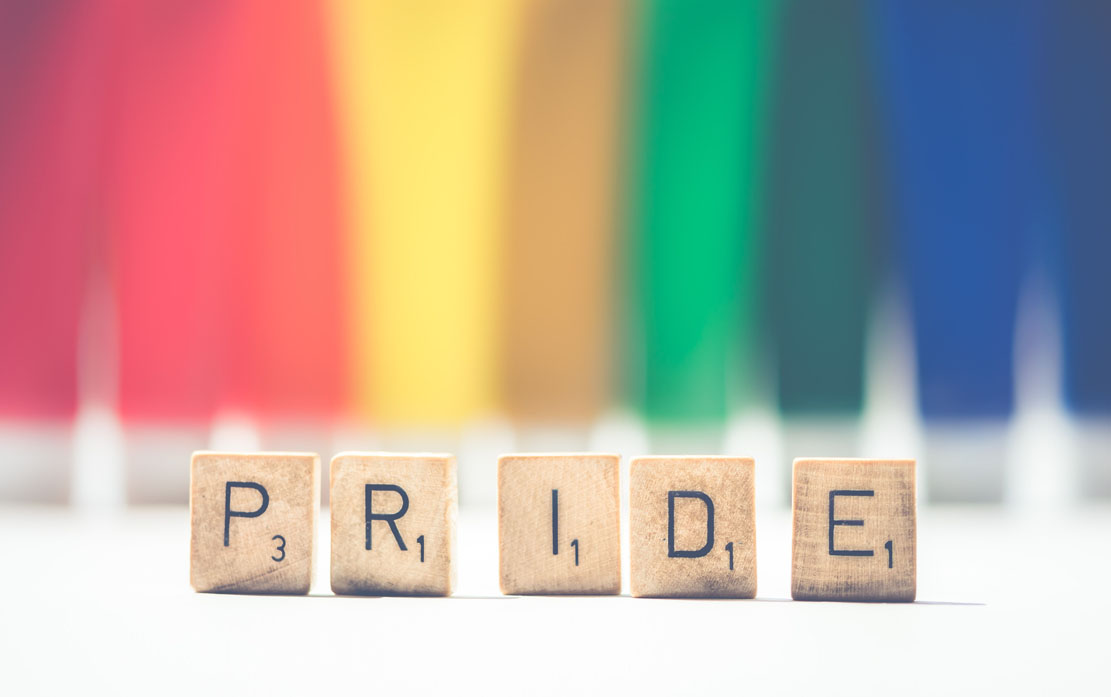
I was already Buddhist when I realized that I was gay. The sort of hegemonic religious institutions that existed in my world completely misunderstood the very foundations of my identity as a gay man. I think it’s very strange for LGBTQIA+ people, when you have some religions saying things like, being gay is a choice, and these people are just choosing sin. You have a lived experience of knowing that this is false. And when you know that that’s not true, it immediately becomes obvious that probably a lot of the other things being said are also not true. It’s quite simple in that way.
Then it changes your perspective on a lot of things, and it forces you to deconstruct. So that was a big thing for me. And obviously, politics sort of goes along with that as well. But I was still quite young when I realized that I was gay. I experienced a lot of opposition from a lot of places. Buddhism really helped me through that. Lama Tsultrim’s work really helped me through that. Feeding Your Demons helped me through that a lot. But also sort of knowing within my core who I was and being able to at least sort of take refuge in that, so to speak.
To be seen or not seen really has very little to do with our physical constitution. The vast majority of the unseen beings that I talk about in my book, Unseen Beings: How We Forgot the World, are fully visible. Unseen beings aren’t just sort of invisible spirits or other imperceptible entities. It’s any being that has been unseen that we have disregarded as a being. And we’ve done this, I think, most commonly with plants, with animals, with fungi, with other biological, non human organisms. But we’ve also done it with humans.
Throughout history, certain societies have “unseen” certain kinds of humans as beings. That has always been a very important sort of manipulative tactic that’s been used by the powerful. It’s not just to establish violent or unequal relations. It has been to dehumanize other kinds of people, so that they can be exploited and abused and in many cases, eradicated without any consequences, with no concern for the morality of it.
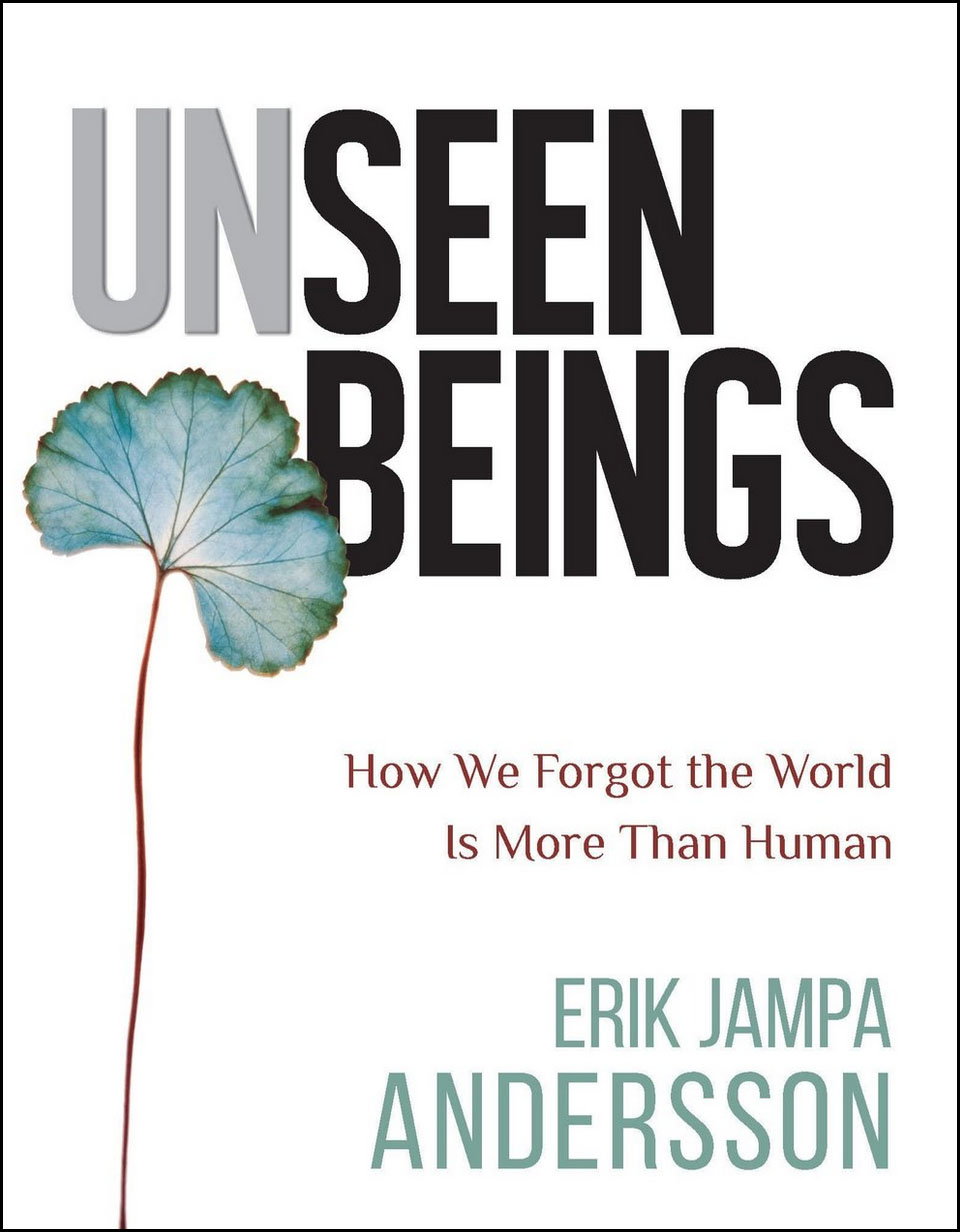
For the vast majority of human history, human societies have been very comfortable with the fact that our world is made up of many different kinds of persons. Not all of them human, many of them not human, in fact. But very specific cultural traditions during very specific periods of our history have taken a completely different approach. Even right now, just in the past few years, there’s been such a major, major uptick in antiqueer legislation, antiqueer panic, amongst especially right wing institutions and populations in a lot of places. And it’s very concerning, because in a lot of these cases, we are being dehumanized. We are being placed on a lesser rung of humanity and of personhood. And in many cases, we are fully just made out to be demons. And what makes this incredibly concerning is, historically, anytime this sort of thing has happened, those in power have then treated those other groups of individuals in absolutely horrendous ways.
The central thrust of my book is that we have unseen many kinds of beings and disregarded their “personhood” and basically turned them into objects and resources that can be exploited freely by human beings. When in fact, everyone and everything is at the center of their own little mandala. And we are all interconnected in very intimate and very nuanced and specific ways. So recognizing the ways in which other beings are very much not resources, but they are beings that we enter into relationship with, that’s a very important realization. We all need to have this realization in order to be able to shift into, hopefully, something better. Not just better in terms of human progress, but also in terms of a less destructive, safer, more fulfilling and more balanced existence.
To learn more about Erik Jampa Andersson and pre-order Erik’s new book Unseen Beings: How We Forgot the World, click here »

